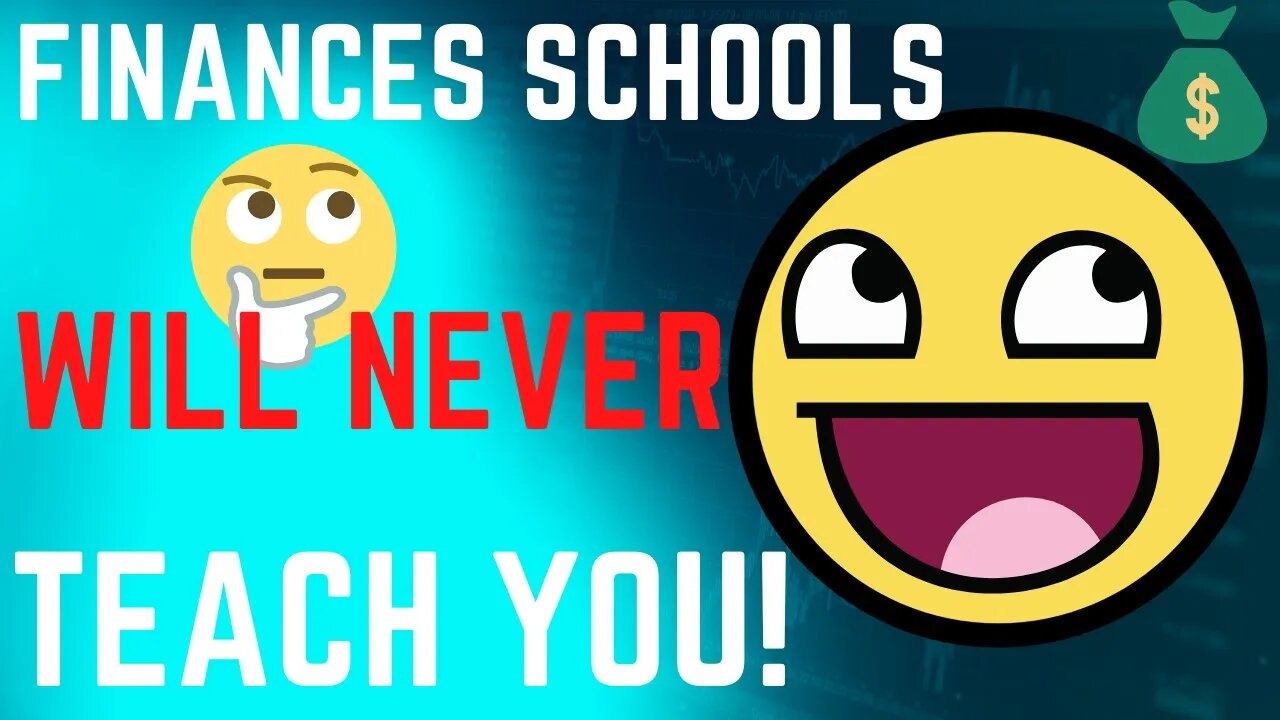Premium Only Content

Finance Tips You Won't Learn In School
Finance Tips You Won't Learn In School
❤️ Liking my content? Show a little love and see your shoutout in my video description ❤️
https://mercury.streamelements.com/mrbusiness4real/tip
IG: https://www.instagram.com/mrbusiness4real/
VidIQ: https://vidiq.com/MrBusiness4Real
Business Credit Builder: https://bit.ly/3CXqs70
Robinhood Referral Link: https://bit.ly/3EFF9Nq
Coinbase Referral Link: https://bit.ly/3RY5xoJ
Fundrise Referral Link: https://bit.ly/3T0RGQ0
Invest early and often
Saving for the future, whether it’s for a car, a home or retirement, probably seems like the furthest thing on a kid’s mind. But starting early will allow them to experience the benefit of compound interest. This is the “snowball effect,” where interest is earned on money previously earned as interest. When kids invest early and often, they can fully realize the benefits over the long run.
Build good credit
Most of us aren’t taught that good credit starts with borrowing, and that taking on a little debt can actually be a good thing. But buyer beware — credit card companies start with teaser rates, but they can skyrocket to double digits. Remember compound interest? It is awesome for saving, but it works against you when borrowing.
Borrow wisely
There will always come a time when your kids need to borrow, and it’s important to teach them how to do it wisely. A good credit score will help them get a better rate and pay less interest over the course of the loan.
Budget, budget, budget
Controlling their spending means assessing where their money is going. Get them in the habit of tracking their spending by building a budget. Having a budget will allow them to realize where they can cut costs to start saving and investing additional assets toward their future.
Understand that splurging is OK, but ALWAYS live below your means
There are a lot of things kids spend money on without even realizing it. Think overpriced lattes, new cellphones, designer clothes, Hulu, etc. — it all adds up. While kids can treat themselves occasionally, make sure their spending isn’t controlling them. If they cannot pay down their credit card every month, it means they are living beyond their means.
Realize that investing isn’t gambling
In recent months, we saw a real frenzy when some traders tried to play casino with the markets. However, kids need to understand that investing isn’t gambling. I’m not opposed to allowing someone to play trader with a small portion of their savings — say 10% — but as an adviser I will make it clear that it is not my decision, but theirs. Gambling means you could lose everything. Sometimes it’s a good lesson learned.
That being said, the recent frenzy shouldn’t dissuade them (or you!) from the markets. I understand this can make investing appear daunting and uncertain, however, it’s important to think long-term. The market will always have its ups and downs, and while there are no guarantees, our market has always come back.
Keep an emergency fund
As the pandemic has shown us, we never know what the future holds. Millions of people lost their jobs and have spent months looking for new ones. Your kids should learn the importance of always having a separate fund that will cover six months of their expenses or liquid alternatives they can tap into in the event of an emergency. They will soon become young adults with expenses such as their credit cards and rent that will come due. Having an emergency fund will serve as a safety net. It’s also important that kids know the difference between investments and their cash. Have them set aside some cash for everyday living expenses and larger upcoming purchases.
Full Article: https://www.kiplinger.com/personal-finance/602688/7-financial-education-tips-kids-wont-learn-in-school
-
 10:31:05
10:31:05
Dr Disrespect
16 hours ago🔴LIVE - DR DISRESPECT - PGA TOUR 2K25 LAUNCH DAY
189K28 -
 2:30:04
2:30:04
Laura Loomer
7 hours agoEP105: MISSING: The Epstein Files
64.3K50 -
 1:46:14
1:46:14
Kim Iversen
8 hours agoTrump to Zelenskyy: 'You're Gambling with World War III'
74.8K117 -
 55:28
55:28
Glenn Greenwald
10 hours agoGlenn Reacts to Trump-Zelensky Exchange and Takes Q&A from our Members | SYSTEM UPDATE #415
120K216 -
 4:26:54
4:26:54
Nerdrotic
12 hours ago $36.13 earnedMarvel PANIC MODE! Kathleen Kennedy GONE?! Hollywood DEI Dead | Friday Night Tights 342 Nick Freitas
133K37 -
 1:30:03
1:30:03
Flyover Conservatives
1 day agoZelensky Fail... God Called IT!; From Prison to the White House: Angela Stanton King’s Unbelievable Redemption Story | FOC Show
50.7K6 -
 1:06:14
1:06:14
IsaacButterfield
11 hours ago $2.18 earnedFree Speech Is Dead | Did Trump Go Too Far? | Sexist Job
44.4K18 -
 1:02:59
1:02:59
Sarah Westall
14 hours agoEpstein Files, Dueling Cabal Factions and Gold from Ancient Civilizations w/ Dave Hodges
73.4K23 -
 3:15:08
3:15:08
I_Came_With_Fire_Podcast
12 hours ago“Trump-Zelensky BEATDOWN | Europe BUILDS MUSCLE | NEWSCUM Podcast”
19.3K2 -
 41:25
41:25
CatfishedOnline
12 hours ago $2.00 earned23-Yr-Old Drove 2,650 Miles to Meet Online Girlfriend in Romance Scam
41.5K4